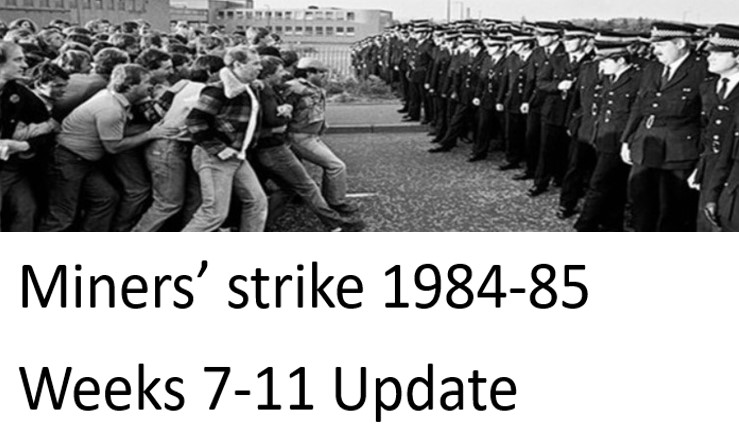At this time of year, many Constituency Labour Parties and Labour ward meetings are beginning the process of selection of candidates for local government elections in May. It is natural that the Labour Party members, overwhelmingly new and now numbering well over half a million, should want Labour candidates to reflect their views and interests. That is absolutely reasonable and democratic, but because some sitting councillors have not been re-selected in Haringey and other local authorities, we have had a campaign of fake outrage by the anti-Labour press.
In the current selections there will be many genuine socialists who, appalled at the devastation of local government by the Tories, will want their elected Labour councillors to conduct a campaign against cuts and in defence of local services. But the key question that has to be posed is, how can this be done? Many councillors feel themselves to be trapped in a situation they cannot control. Because of this they fall victim to the completely false strategy of the so-called ‘dented shield’, by which it is argued, that ‘any Labour council is better than a Tory one’ or that ‘only Labour councillors can mitigate the cuts imposed by national government’.
There is no doubt that local government is in deep crisis. When the Tories were first elected in 2010, local government expenditure amounted to 8.4% of the national economy. Thanks to swingeing cuts by successive Tory governments, by 2020-21, this will have fallen to 5.7%, its lowest for sixty years. A year ago, the Local Government Information Unit published a paper in which they argued that three quarters of authorities “had little or no confidence in the sustainability of local government finances”. The LGIU argued then that council finances were “at breaking point”. A year later, local authority finances are broken and there are serious and unresolved crises in social care, housing and homelessness, adult social care, environment and waste, leisure and recreations, libraries, education and every other service carried on by local authorities. In many towns and cities, entire services have virtually disappeared.
Meanwhile, those who still work for local authorities – tens of thousands having been made redundant over the years, or out-sourced to less efficient private contractors – are underpaid, overworked and overwhelmingly demoralised. Like all workers in the public sector, local authority staff have suffered significant real cuts in their living standards in the past eight years, while at the same time they are expected to do more work in less time, with little thanks for it.
We would argue that it is not the responsibility of any Labour councillor to carry through any cuts in local government services or jobs. It is not acceptable for Labour councillors to complain about the situation they find themselves in, or of being ‘forced’ to carry through cuts, if at the same time they make no efforts to conduct any serious campaign against the Tories. On the contrary, too many Labour councillors take their budget decisions behind closed doors, away from the scrutiny and challenge of the labour movement.
If we take on single example: in England’s second largest city, Birmingham, Labour has 79 out of 120 seats on the council. We ought to ask the question, how many of the tens of thousands of Labour Party members in the City have been consulted over cuts to services and jobs, or has the entire process been driven by a few dozen members in secret conclave? These are not esoteric issues, but issues of elementary Labour democracy.
It does not go unnoticed either, that councillors are well paid. Most councillors get an annual salary of well over £10,000. In Labour authorities, cabinet members and leading councillors can get three, four or five times that salary. Workers can be forgiven some cynicism, if amid all the cuts in services, jobs and living standards for workers, they think that Labour councillors are too well insulated from the austerity freeze.
We would not argue that any worker going forward as a Labour candidate in a local authority should expect to be out of pocket. Legitimate and audited expenses have never been begrudged within the labour movement. But equally, where councillors have their ‘normal’ income protected, there is no reason why they should have their living standards elevated above those of the people they purport to represent. On the contrary, Labour councillors who can do so should set a public example by donating their extra income back to the labour movement or to good causes, to show that they are personally no better off than those they represent.
How then should Labour councillors oppose cuts? It should go without saying that Labour councillors should under no circumstances enter coalitions with Liberal or Tory councillors. These arrangements are always a cover for cuts in jobs and services and are always done behind the backs of the Labour Party membership who are never consulted. Individual councillors may benefit in terms of their own prestige and standing, but the Party as a whole is discredited and its authority undermined.
Labour councils over the years have a long and proud tradition of standing up to Tory Governments. From the Poplar Council in the 1930s to Liverpool in the 1980s, Labour councillors have stood firm. In 1973, councillors in Clay Cross were surcharged £685 (equivalent to £7600 today) for refusing to follow a Tory diktat to increase council house rents. The Clay Cross Council sent speakers to address rallies and meetings in every part of the country and their campaign became a cause celebre within the labour movement. Later, in 1985, councillors from Lambeth and Liverpool who had been involved in a rebellion against rate-capping were also surcharged.
The best example of a council struggle against cuts was that carried on by the Liverpool city council from 1984 to 1985. Rather than lead a ‘token’ opposition behind closed doors, the Liverpool councillors took their case to the broad labour movement across the whole city. Workplace meetings, factory meetings and community meetings were held by the hundred. Literally thousands were involved in discussions and meetings and there was not a single person in the City who did not understand the situation that the Tories had put Liverpool in. Trade union activists in both the private and the public sector were heavily involved in the campaign. The District Labour Party – a body of two hundred delegates from every ward and affiliated trade union – was the focus of opposition. It was here that the issues were hammered out and this was the body that determined the policy and tactics of the council.
At various times, the council organised massive demonstrations across the city, the biggest fifty thousand, as well as two city-wide general strikes. The Thatcher Government was twice forced to back down and grant concessions to the council, and the fruits of that victory still stand today in the form of the council houses built, apprenticeships provided and services preserved.
The Liverpool struggle, in its early days at least, was a model of how to take the issue to the working class and the labour movement and not to hide it behind closed doors. It was for that reason that the right-wing Labour leaders of the day, egged on by the Tory press, purged and witch-hunted Liverpool City Labour Party out of all recognition. To rub salt in the wounds, individual councillors were later surcharged massive sums of money that took years to pay off. Yet had there been three or four other Labour city councils prepared to stand with Liverpool at that time, it is likely that they could have brought the Thatcher Government down.
The Labour Party’s officialdom has rules written into the Party constitution today that make it extremely difficult for a Labour councillor to support a no-cuts budget or an ‘illegal’ deficit budget. There are dark murmurings about ‘surcharges’ and bans from office, although in fact, councillors cannot be surcharged.
But Labour councillors cannot limit themselves to token action. They must put themselves at the head of a mass campaign against under-funding and cuts. Once an authority’s reserves are used up, a deficit budget is the only policy that can be posed as a direct challenge to the Government and the Audit Commission. But the essential issue is to have a campaign, one that could be made concrete and meaningful if the local community was shown in facts and figures what could be achieved if cuts were not made and money restored – that is, more local leisure facilities, better social care, improved children’s services, and so on.
Before going down the road of an ‘Illegal’ budget, therefore, Labour councillors should develop a mass campaign in all communities, reaching out to trade unions and the whole Party membership. A mass resignation of councillors and a campaign of re-election on a no-cuts platform is far more preferable to a meek acceptance of cuts behind closed doors. If there was such a campaign and it led to Labour councillors being re-elected, it then poses the question of a direct challenge to the Government and its pet ‘Audit Commission’ on cuts.
Since the Local Government Act of 2000, councillors cannot be individually surcharged. That is no longer an option for the Government or the Audit Commission. If councillors are barred from office as a result of opposing a cuts budget, then the Labour Party should campaign for others to be elected in their place, again on a no-cuts platform. Of course there might be some Labour councillors who would not support this programme of action…“I won’t stand down or be de-barred from office, therefore I must support cuts”. That would be unfortunate because in our opinion there should be no place in a campaign against cuts for any councillor who puts their own personal position in this way above that of the working class as a whole.
To any Labour councillor today therefore, who says he or she ‘opposes cuts’, we would have to ask…what steps are you taking to share your budget concerns with the movement? Have you taken this to your own Labour Party ward members to seek their support? Have you (and they) campaigned locally on the nature and scale of cuts? How many public meetings have you addressed? How many trade union branches have you spoken to? What kind of public campaign have you worked out? Before any councillor can seriously claim to be opposing cuts, they have to answer all of these questions with positive answers.
In all the discussion around local authority cuts, we cannot ignore the responsibility of the national Labour Party. It is unfortunate, to say the least, that the national party, including its parliamentary leadership, has provided no lead on the issue whatsoever, and there is an implicit acceptance that Labour councils follow the ‘dented shield’ strategy.
But the Party leadership should place itself in the direct forefront of any fight against cuts. Jeremy Corbyn and the left NEC should be convening a special Party conference, with representatives from Labour authorities, CLPs and local government trade unions, to hammer out a policy to stop the Tory cuts in their tracks. What was true in the 1980s is even more true today – if only four or five big local Labour authorities, especially from city councils Like Newcastle, Liverpool and Sheffield – were to throw down challenge to the Tories, then Theresa May’s Government would not last a week.
Those councillors who feel ‘trapped’ by the situation they find themselves in should be raising these issues now in their local ward meetings and CLPs. Labour councillors can be leaders in their local communities, fighting in the interests of working class people. Or they can quietly implement cuts, in small meetings and behind closed doors. But they cannot do both. The Labour Party as a whole should be carrying through policies in the interests of working class people. That was the purpose of its foundation more than a hundred years ago and that has to be its purpose today.
January 15, 2018



